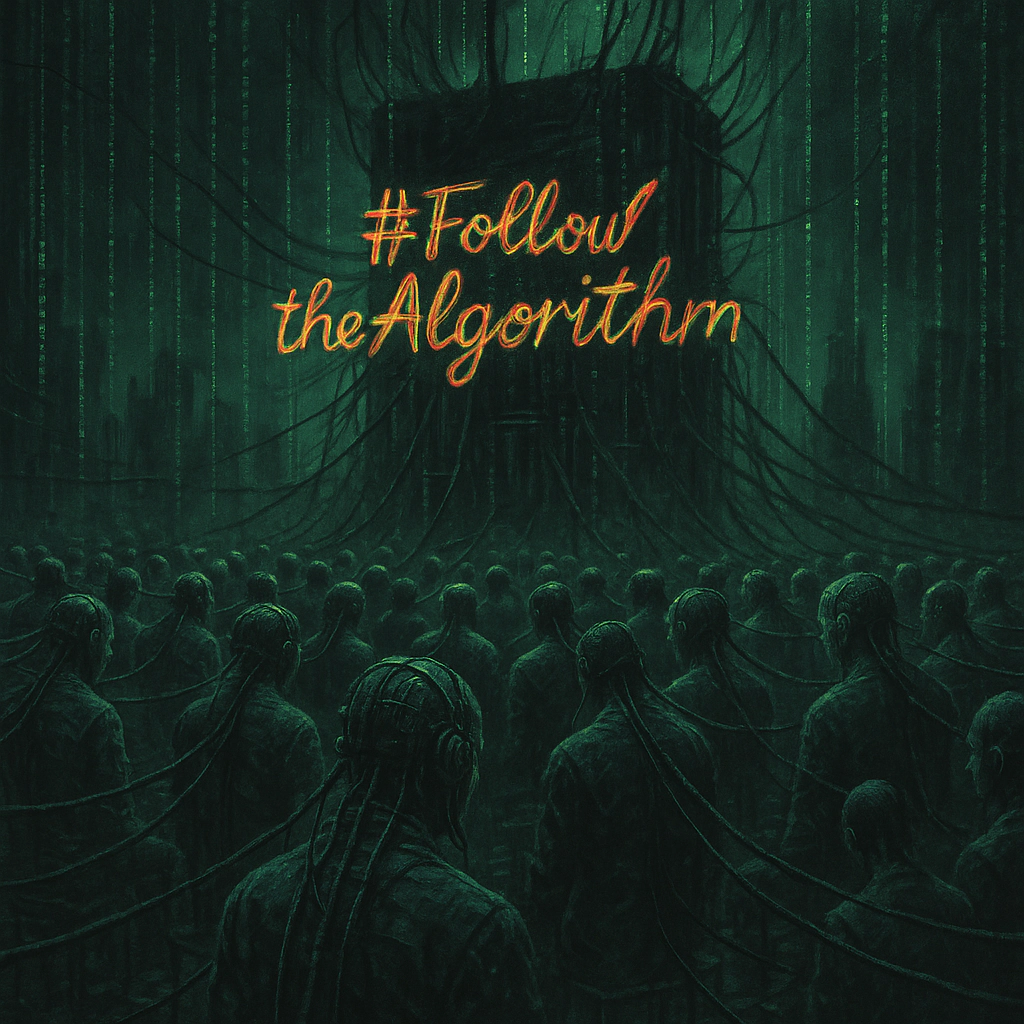Social control in the Cybernetic age
Media power: A Critical X-Ray of Digital Control
“You’re not using technology. Technology is using you.”
Welcome to an era where devices are no longer held—they are internalized. Where control doesn’t punish—it persuades. Where power doesn’t dominate from above—it infiltrates every gesture, every click, every scroll.
We have entered the cybernetic society.
I. The Mathematisation of the Social: Information as a New Ontological Paradigm
It’s not just about screens, apps, or algorithms. It’s about how we think reality.
Claude Shannon’s information theory transformed communication into pure data flow, legitimizing a vision of society as a computable system. Data replaces emotions. Patterns replace intentions. The social becomes calculable—therefore, manipulable.
This isn’t accidental. The groundwork was already laid by James Clerk Maxwell, whose electromagnetic field theory prefigured a relational vision of reality: everything is connection, everything is flow.
This engineering mindset toward society is now the norm. The individual is no longer a subject, but a data source. The concrete realization of Zuboff’s “surveillance capitalism”, where every action becomes value—extracted by those who control the code.
II. Cybernetics in the meida age as strong Power: From Centralized Control to Algorithmic Self-Regulation
With Norbert Wiener, cybernetics marked an ontological shift: the world became a self-regulating system. Feedback and control are no longer technical concepts—they are the backbone of a new social order.
In this universe, intelligence is not individual—it is distributed. Marvin Minsky calls it the “society of mind”: consciousness is a network. And today, that network is connected, global, automated.
Digital media are the new tools of social regulation: recommender systems, predictive algorithms, machine learning. They don’t command—they nudge us gently toward the “right direction.” Power becomes architecture.
III. From Media Cyberspace to the Cybernetic Collective Self: The Subject is a Network
William Gibson’s “consensual hallucination” has become our cognitive habitat. Cyberspace is no longer virtual—it is our social reality. A relational system where subjectivity is constantly contested.
Thinkers like Sherry Turkle, Michael Benedikt, and Pierre Lévy showed how this space constructs identities, memories, and collectivities. But what begins as collective intelligence can be captured and recoded. Platforms are the new Panopticons, and we are their willing inmates.
IV. Social media and The Platform Society: Invisible Architecture of Power
Jan van Dijk calls it the Platform Society. Castells speaks of the Network Society. Two sides of the same dystopia: power is networked, deterritorialized, embedded in the platforms we use daily. Code is law. Infrastructure is ideology.
Today, with the rise of LLMs and generative AI, the landscape gets murkier. Algorithms no longer interpret reality—they produce it. Truth becomes a statistical function. Subjectivity a parametric output.
V. Distributed Control in the Media age: The Digital Microphysics of Power
No need for central command. Power is now a network. Control is molecular, distributed. Every device, every notification, every feed is a micro-component of a larger system. Power is environmental.
As Foucault foresaw, normalization no longer happens through punishment but through internalized routines. Today, those routines are technologically mediated. Control is not imposed—it’s embedded.

VI. Modulation Society: From Disciplinary to Adaptive Power
Gilles Deleuze predicted it: we’ve moved from disciplinary societies to control societies. Modulation has replaced discipline. No more walls—just interfaces.
The digital environment adapts to the subject, pampers them, follows them. But in adapting, it shapes them. Personalization is the smiling face of power.
As Nick Couldry explains, this dynamic leads to a true data colonization. Every choice, every preference, every relationship becomes fuel for an extractive capitalism that mines life itself.
VII. The Cyborg Subject: Human Augmentation and the Dissolution of Identity
McLuhan warned us: every technology is an extension of the body. Today, those extensions are internal. Smartphones are cognitive prostheses. Social media, relational organs.
The contemporary subject is cyborg—not because of implants, but because they can no longer think, remember, or decide without machines. Identity is no longer essence—it’s interface. And its configurations are generated by algorithms.
The mind is distributed—but not free. Collective intelligence has morphed into distributed subjectivity, often centerless, often stripped of agency.
VIII. Algorithmic Citizenship: Reputation, Surveillance, and Conformity
Being a citizen in the cybernetic society isn’t about rights—it’s about performing conformity. Ratings, likes, badges, social credit: citizenship is an ongoing performance.
Surveillance is no longer imposed—it’s voluntary. Participation is the price of access. Inclusion comes through forced agency: participate or be excluded.
IX. Colonized Thought: Algorithmic Mediation and Cognitive Standardization
Lévi-Strauss spoke of binary structures. Today’s algorithms go further—they don’t think in oppositions but in patterns. They operate beyond the symbolic, rewriting our very capacity to think.
Filter bubbles, echo chambers, algorithmic rationality: each subject becomes a predictive replica of themselves. Thought is homogenized. Difference dissolves.
As Minsky might say, we are now inhabited by new cognitive agents: computational ones. And too often, they overwhelm the reflective, critical, and dissonant ones.
Conclusion: Decode. Resist. Reclaim.
Power is no longer outside us. It’s in the network. In the device. In the interface. In the routine.
But that makes it visible. Decodable. Disruptable.
A critical sociology of the digital must go beyond critique. It must design. It must build alternative practices, autonomous zones, rebellious imaginaries.
The cybernetic system can be a prison. But it can also be a temple. A space for collective emancipation.
It depends on us.
It depends on whether we follow the code…
…or follow the algorithm to disarm it.







